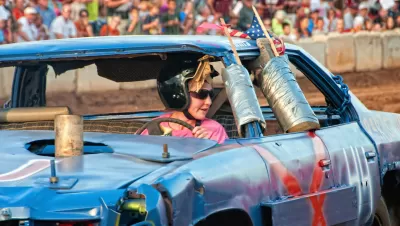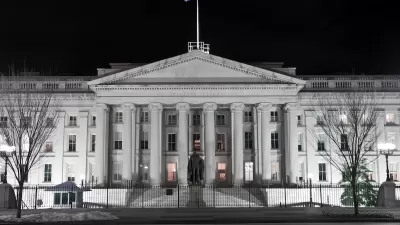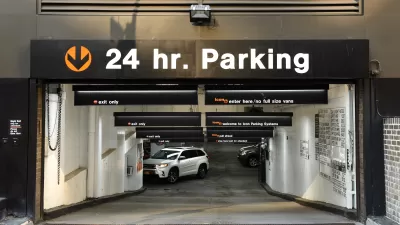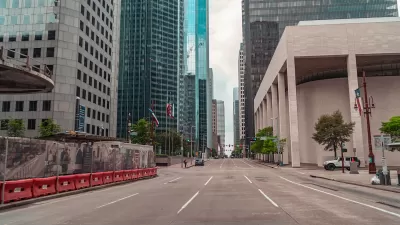The automobile has been pitched as a machine for freedom, but travelling inside a small metal box, strapped to a chair, forced to focus on the road while your life is threatened by two-ton projectiles doesn’t sound like freedom to David Levinson.

The automobile has been pitched as a machine for freedom. But you travel caged inside a small metal box, strapped to your chair, while your life is being threatened randomly by high speed two-ton projectiles, forced to keep eyes focused on the road and obliged to place hands at the 10 and 2 o’clock positions on the wheel, with your foot constrained to a small area on the floor. This doesn’t sound like freedom to me.

If you choose to enter a freeway, you are not even permitted to leave your car til you exit the road.
On streets, your behavior is governed by inanimate traffic lights, signs, and paint, which are violated at penalty of automatically generated fine or imprisonment.
This is all self-imposed, so it is more like committing yourself to an institution, the automobility asylum, perhaps, than prison which is imposed by others.
An alternative view is that freedom is not ensconced in a machine but in a way you can interact with the world. If you can, at your whim, when you want to, do what you want, engage in the activities you want, without fearing for your life, that is closer to freedom.
Jarrett Walker argues frequency is freedom. This is closer to the truth. While on a bus or train I am still caged in a metal box, it is a larger box, I am not strapped in, and I am much safer. I am also now free to do something with my time while in motion, not constrained to monitor the road.
And where can I travel in these safe freedom machines, reaching many more opportunities? Cities. This gives a new meaning to the expression: Urban air makes you free.
‘But I can reach more places in a car than on transit in the same amount of time, almost everywhere,’ you argue. This is true, if you ignore the costs you impose on society, if you ignore the fixed costs of that opportunity to you, and if you ignore the ability to use time in some other way, as is available when not driving.
Freedom from car ownership, freedom from the obligation of driving, and freedom from negative externalities borne by the community at large are how we should reframe transport and land use goals. What can we do to give people those freedoms?
FULL STORY: The Automobile as Prison. The City as Freedom.

Trump Administration Could Effectively End Housing Voucher Program
Federal officials are eyeing major cuts to the Section 8 program that helps millions of low-income households pay rent.

Planetizen Federal Action Tracker
A weekly monitor of how Trump’s orders and actions are impacting planners and planning in America.

Ken Jennings Launches Transit Web Series
The Jeopardy champ wants you to ride public transit.

Crime Continues to Drop on Philly, San Francisco Transit Systems
SEPTA and BART both saw significant declines in violent crime in the first quarter of 2025.

How South LA Green Spaces Power Community Health and Hope
Green spaces like South L.A. Wetlands Park are helping South Los Angeles residents promote healthy lifestyles, build community, and advocate for improvements that reflect local needs in historically underserved neighborhoods.

Sacramento Plans ‘Quick-Build’ Road Safety Projects
The city wants to accelerate small-scale safety improvements that use low-cost equipment to make an impact at dangerous intersections.
Urban Design for Planners 1: Software Tools
This six-course series explores essential urban design concepts using open source software and equips planners with the tools they need to participate fully in the urban design process.
Planning for Universal Design
Learn the tools for implementing Universal Design in planning regulations.
Heyer Gruel & Associates PA
Ada County Highway District
Institute for Housing and Urban Development Studies (IHS)
City of Grandview
Harvard GSD Executive Education
Toledo-Lucas County Plan Commissions
Salt Lake City
NYU Wagner Graduate School of Public Service





























